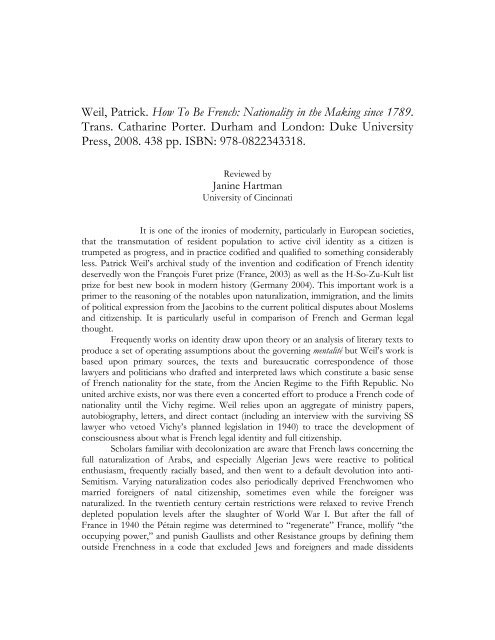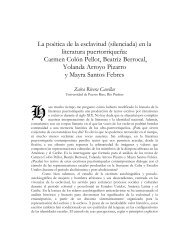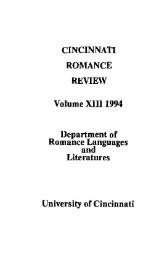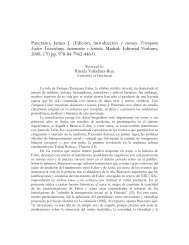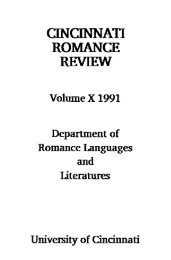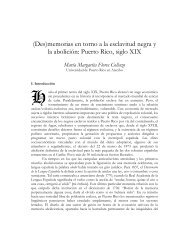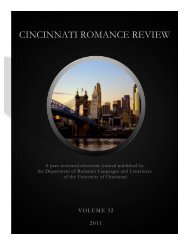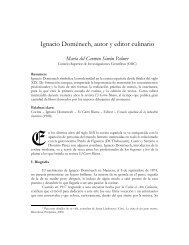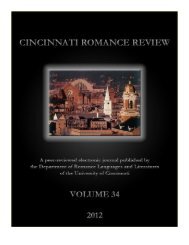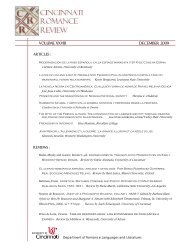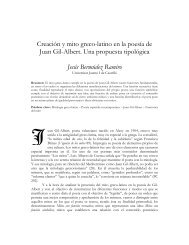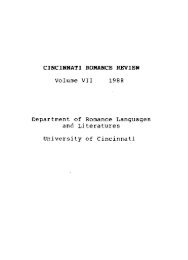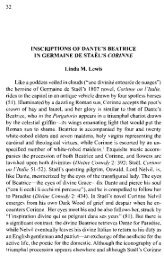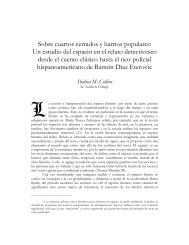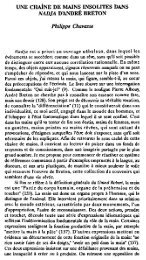Volume 29 - Cincinnati Romance Review
Volume 29 - Cincinnati Romance Review
Volume 29 - Cincinnati Romance Review
Create successful ePaper yourself
Turn your PDF publications into a flip-book with our unique Google optimized e-Paper software.
Weil, Patrick. How To Be French: Nationality in the Making since 1789.<br />
Trans. Catharine Porter. Durham and London: Duke University<br />
Press, 2008. 438 pp. ISBN: 978-0822343318.<br />
<strong>Review</strong>ed by<br />
Janine Hartman<br />
University of <strong>Cincinnati</strong><br />
It is one of the ironies of modernity, particularly in European societies,<br />
that the transmutation of resident population to active civil identity as a citizen is<br />
trumpeted as progress, and in practice codified and qualified to something considerably<br />
less. Patrick Weil’s archival study of the invention and codification of French identity<br />
deservedly won the François Furet prize (France, 2003) as well as the H-So-Zu-Kult list<br />
prize for best new book in modern history (Germany 2004). This important work is a<br />
primer to the reasoning of the notables upon naturalization, immigration, and the limits<br />
of political expression from the Jacobins to the current political disputes about Moslems<br />
and citizenship. It is particularly useful in comparison of French and German legal<br />
thought.<br />
Frequently works on identity draw upon theory or an analysis of literary texts to<br />
produce a set of operating assumptions about the governing mentalité but Weil’s work is<br />
based upon primary sources, the texts and bureaucratic correspondence of those<br />
lawyers and politicians who drafted and interpreted laws which constitute a basic sense<br />
of French nationality for the state, from the Ancien Regime to the Fifth Republic. No<br />
united archive exists, nor was there even a concerted effort to produce a French code of<br />
nationality until the Vichy regime. Weil relies upon an aggregate of ministry papers,<br />
autobiography, letters, and direct contact (including an interview with the surviving SS<br />
lawyer who vetoed Vichy’s planned legislation in 1940) to trace the development of<br />
consciousness about what is French legal identity and full citizenship.<br />
Scholars familiar with decolonization are aware that French laws concerning the<br />
full naturalization of Arabs, and especially Algerian Jews were reactive to political<br />
enthusiasm, frequently racially based, and then went to a default devolution into anti-<br />
Semitism. Varying naturalization codes also periodically deprived Frenchwomen who<br />
married foreigners of natal citizenship, sometimes even while the foreigner was<br />
naturalized. In the twentieth century certain restrictions were relaxed to revive French<br />
depleted population levels after the slaughter of World War I. But after the fall of<br />
France in 1940 the Pétain regime was determined to “regenerate” France, mollify “the<br />
occupying power,” and punish Gaullists and other Resistance groups by defining them<br />
outside Frenchness in a code that excluded Jews and foreigners and made dissidents


